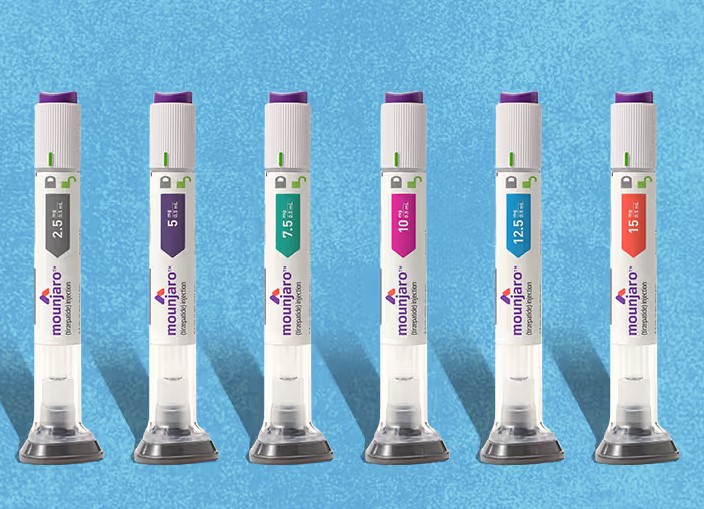BOURSESSENEGAL – If you’ve been following the news around diabetes management, you might have heard about the Mounjaro shortage. This medication has gained significant attention for its effectiveness in helping individuals manage Type 2 diabetes. Unfortunately, the recent scarcity of Mounjaro has left many patients and healthcare providers concerned about treatment options. In this post, we’ll explore the reasons behind this shortage, its implications, and what you can do if you’re affected.
What is Mounjaro?
Mounjaro (tirzepatide) is a relatively new medication designed to improve glycemic control in adults with Type 2 diabetes. It works by mimicking hormones that regulate blood sugar levels and appetite. Unlike traditional diabetes medications, Mounjaro acts on multiple receptors in the body, leading to significant weight loss and improved blood sugar management.
How Does Mounjaro Work?
Mounjaro primarily targets the GLP-1 and GIP receptors. These hormones play essential roles in insulin secretion, appetite regulation, and glucose metabolism. By activating these receptors, Mounjaro helps lower blood sugar levels after meals and reduces hunger, aiding in weight loss. This multifaceted approach makes it a valuable option for many patients struggling with Type 2 diabetes.
The Current Mounjaro Shortage
Reasons Behind the Mounjaro Shortage
The shortage of Mounjaro can be attributed to several factors:
- Increased Demand: Since its approval, the popularity of Mounjaro has skyrocketed. More people are seeking it for its effectiveness, which has led to higher-than-expected demand.
- Manufacturing Challenges: Producing Mounjaro requires complex processes. Any disruption in manufacturing, whether due to quality control issues or supply chain disruptions, can lead to shortages.
- Supply Chain Issues: The COVID-19 pandemic has impacted global supply chains. Many pharmaceutical companies have faced challenges in sourcing raw materials and distributing their products, contributing to the Mounjaro shortage.
- Regulatory Hurdles: New regulations can sometimes slow down production and distribution. Pharmaceutical companies must navigate these regulations while ensuring product safety and efficacy.
Implications of the Shortage
The Mounjaro shortage has significant implications for patients relying on this medication. Here are some key effects:
- Treatment Disruptions: Patients may find it challenging to obtain their prescriptions, leading to disruptions in their diabetes management.
- Increased Anxiety: The uncertainty surrounding medication availability can cause anxiety and stress for individuals who depend on Mounjaro for their health.
- Potential Health Risks: For those who cannot access Mounjaro, the lack of effective treatment can lead to uncontrolled blood sugar levels, increasing the risk of complications.
What to Do If You’re Affected
If you find yourself impacted by the Mounjaro shortage, here are steps you can take:
1. Communicate with Your Healthcare Provider
Your first step should be to discuss your situation with your healthcare provider. They can provide guidance on alternative medications or treatment plans that may work for you. Open communication is vital to ensuring you receive the best possible care during this challenging time.
2. Explore Alternative Medications
There are several alternative medications for managing Type 2 diabetes. Your healthcare provider may recommend options such as:
- Metformin: Often the first-line treatment for Type 2 diabetes, Metformin helps improve insulin sensitivity and lower blood sugar levels.
- GLP-1 Receptor Agonists: Other medications in this class, like Ozempic or Trulicity, may be available and effective.
- SGLT2 Inhibitors: Drugs such as Farxiga or Jardiance help lower blood sugar by preventing glucose reabsorption in the kidneys.
3. Consider Lifestyle Changes
While medication is essential for managing diabetes, lifestyle changes can also have a significant impact. Consider the following:
- Diet: Focus on a balanced diet rich in whole foods, such as vegetables, lean proteins, and healthy fats. Reducing processed foods and sugars can help stabilize blood sugar levels.
- Exercise: Regular physical activity can enhance insulin sensitivity and contribute to weight management. Aim for at least 150 minutes of moderate-intensity exercise each week.
- Monitoring Blood Sugar: Keep track of your blood sugar levels regularly. This information can help you and your healthcare provider make informed decisions about your treatment plan.
4. Stay Informed
Stay updated on the Mounjaro shortage and any developments regarding its availability. Follow reputable sources, such as the manufacturer’s website and healthcare organizations, for the latest information.
The Future of Mounjaro Supply
Efforts to Address the Shortage
Pharmaceutical companies are actively working to address the Mounjaro shortage. They are:
- Increasing Production Capacity: Efforts to ramp up production facilities and streamline manufacturing processes can help meet demand.
- Improving Supply Chains: Companies are also focusing on enhancing their supply chains to ensure a consistent flow of raw materials and distribution.
Regulatory Support
Regulatory bodies may provide support to expedite the approval of additional manufacturing sites or suppliers. This assistance can help alleviate the shortage more quickly.
Conclusion
The Mounjaro shortage has raised concerns for many individuals managing Type 2 diabetes. Understanding the reasons behind this shortage, its implications, and alternative options is crucial for navigating this challenge.
By staying informed, communicating with healthcare providers, and exploring alternative treatments and lifestyle changes, you can continue to manage your diabetes effectively. Remember, proactive steps can help you maintain your health and well-being during this uncertain time. As the situation evolves, stay hopeful and take charge of your diabetes management.
REFERENCE : https://www.cdcfoundation.org/



